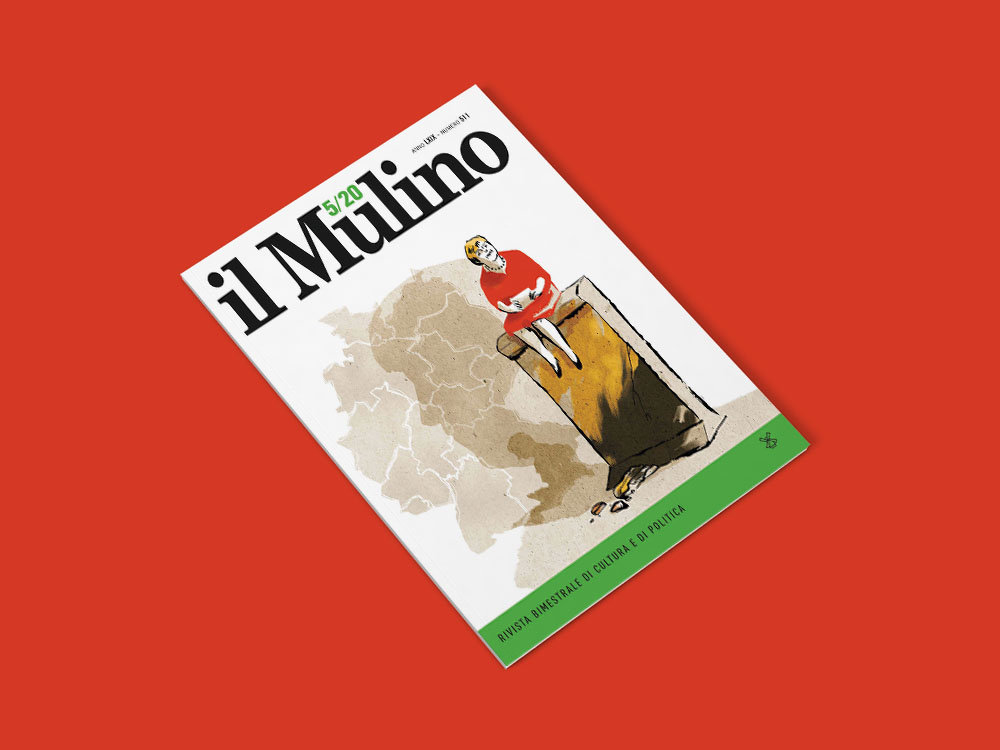The German Federal Constitutional Court’s controversial Public Sector Purchase Programme (PSPP) judgment of May 2020 ruled that the European Central Bank had exceeded its mandate in enabling central banks to directly purchase bonds from national governments and other financial bodies in the Eurosytem. Over two trillion euros of securities have been purchased under the PSPP since it was launched by the ECB in 2015. The German complainants argued that the PSPP violated member state’s sovereignty over budgetary matters and amounted to an interference into economic policy. Specifically, lowering the costs of government borrowing had caused interest rates to fall beyond zero, which in turn had impacted negatively on investments and savings.
In December 2018, the European Court of Justice (CJEU) had ruled that ECB had not breached European Law by exceeding its monetary policy ambit. By overturning the CJEU ruling and ordering the Bundesbank to withdraw from the PSPP until the ECB had conducted a review of the programme, the FCC was challenging the primacy of EU law over national law.
Ever since the Federal Constitutional Court’s Lisbon judgment of 2009, the German and European supreme courts have been at odds over the question of whether ‘competence-competence’ – as it is referred to in German law – resides at the national or European level. However, this was the first time that open conflict had broken out. The PSPP judgement was criticized as having been motivated by national self-interest, and particularly the interests of a German private investment sector that had benefited from the high interest rates enabled by the dominant position of the German economy in a weak eurozone. The judgement was also seen to have opened the door for member states opposed to rule of law standards to overturn politically inconvenient rulings of the CJEU and other European courts.
The complaint was brought by the AfD-founder and economist Bernd Lücke and expressed the resentment among the national-conservative section of the German electorate towards the so-called ‘transfer union’. The judgment also played into the hands of the Eurosceptic right in Germany and Europe; Poland’s prime minister was quick to congratulate the judgement as one of the ‘most important in European history’.
However, a minority of commentators not symptathetic to the far-right defended the judgment as a necessary reprimand to two of the EU’s most powerful yet unaccountable bodies. For Andreas Voßkuhle, the president of the Federal Constitutional Court whose term ended immediately afterwards, the PSPP judgment was anything other than anti-European. Below, in conversation with jurist and il Mulino editor Fernando D’Aniello, he explains why. (Eurozine)
 This article is from il Mulino 5/2020. Read a review of the issue.
This article is from il Mulino 5/2020. Read a review of the issue.
Fernando D’Aniello: The Federal Constitutional Court’s PSPP ruling was heavily criticized in Germany and across Europe. The Court has been accused of thinking too nationally since its ruling on the Lisbon Treaty in 2009 and of posing an obstacle to European integration.
Andreas Voßkuhle: This is a view of our rulings that we and many others do not share. On the contrary, I believe the PSPP ruling strengthens the process of European integration. It is unlikely that any other national constitutional court has supported the European Court of Justice (CJEU) as often as the German Federal Constitutional Court (FCC). We were the first court to explicitly recognise the supremacy of European law and the CJEU’s competence to develop the law. We were one of the first courts to hold that failure by an ordinary court to refer to the CJEU was a breach of the constitution. We encouraged the development of fundamental rights at the European level through the Solange ruling in 1986.
I could name many other examples, all of which show that we have tried to establish Europe as the community of law. This goes hand in hand with the idea of a European association of constitutional courts that includes the CJEU, the ECHR and the constitutional courts of the member states. The national courts, especially the Italian Corte Costituzionale, have always contributed to the joint process. Our ruling has made a major contribution to the stability of Europe.
It is no coincidence that Germany probably has a more overwhelmingly positive view of European integration than any other European country. German citizens do not feel that they are helpless in the face of the integration process precisely because the FCC is able to check the compatibility of changes to the European treaties with the Basic Law and to review the compliance of European institutions with them. That generates trust.
Take the European Central Bank (ECB), an institution that is extremely important but whose democratic accountability is weak. Although it is able to make decisions that have major consequences, the ECB is subject to almost no control. Our ruling on the PSPP goes some way towards placing legal constraints on this institution. We strongly believe that this stabilizes Europe. None of our judgements has led the process of integration being obstructed in any way. The ECB has now decided to operate more transparently; it is giving better-founded reasons for its decisions, it is allowing citizens to see what it does, and I believe that over all this will contribute to it becoming more accepted, in Germany and in all other European member states.
But I’m sure you won’t have been happy about the positive reaction to the ruling from the Eurosceptic right?
Obviously, it is not good to have the wrong friends. But we can’t base our judgements on who is likely to be approve of them. In this judgement, we were concerned to strengthen the legal controls and to request that the CJEU exercise greater control. We had already highlighted the problem in connection with the Outright Monetary Transaction proceedings in 2012.
Others say that the FCC and the CJEU wanted to develop criteria for legal constraints on EU institutions and that the ultra vires review was part of an ongoing legal dialogue on this matter.
Ultra vires reviews are not everyday legal instruments, they are highly unusual. There are strict criteria in German constitutional law that must be met before they can be conducted. Many thought that these criteria were so strict that we would never be able to deem an act ultra vires.
It is true that there has long been a dialogue between the CJEU and the Federal Constitutional Court. If we look at previous rulings, it is evident that we are indeed trying to work together to develop criteria for legal constraints on the activities of the ECB. We do not see eye to eye on all issues, but we have come a long way together. Both courts are of the opinion that legal control can be exercised over the ECB. That was not fully clear at the beginning, because some member states, such as Italy, took the view that the ECB was not subject to any judicial control. But like us, the CJEU believes that every European institution must abide by the law and must therefore also be reviewable.
The second point on which the CJEU and the FCC agree is that there should be no way the ECB can circumvent the prohibition on the monetary financing of budget deficits. This finding, too, is far from minor. There are, however, differing views on the intensity of controls. Is it sufficient, as the CJEU believes, for the ECB to simply state that it does not engage in economic policy? Or does it need to prove this in more detail, as the FCC requires? We hope that we will reach a common understanding on this point, too.
Another issue on which our views diverge is whether the CJEU can carry out ultra vires acts at all. On this point, the CJEU is faced with a relatively uniform body of case law from member states’ constitutional courts. Around two thirds of the courts consider that ultra vires reviews are essential and that the CJEU itself can be reviewed. The CJEU, on the other hand, is understandably concerned that the primacy of European law will be undermined if large numbers of courts suddenly say, ‘We won’t accept that!’ But there is no indication of this kind of development. Our ultra vires jurisprudence is now almost thirty years old and this is the first time that the prerequisites have been met.
To date, there have been only three occasions on which the supreme court of a member state has declared an act by an institution of the Union to be inapplicable in its own territory: the French Council of State in Cohn-Bendit, the Danish Supreme Court in in Ajos, and the Czech Constitutional Court in Holubec. Ultimately, it’s a question of structure. If we assume that European law is autonomous, then this precludes ultra vires acts by the CJEU. But if we assume – as do the FCC and the constitutional courts of many other member states – that the member states are the ‘masters of the treaties’, then this kind of ultra vires review is necessary in order to maintain the structure. This is why the Italian Corte Costituzionale has the controlimiti doctrine.
How can the plurality of the national constitutional courts be reconciled with legal certainty?
This is an important question that is not easy to resolve. The European Union has a wide variety of constitutional traditions, which to a certain extent we want to preserve. It is precisely Europe’s plurality that makes it strong; disregarding these constitutional traditions would endanger the European project. At the same time, we want to and must act as a single entity. So, there is always a tension between diversity and unity. The combination of the ‘relative absolute’ primacy of European law and the ultra vires review of the member states is, in my opinion, an effective way of establishing the right balance.
The Lisbon Treaty was a compromise following the failure of the project to form a European Constitution. Had that project succeeded, it would have become very difficult to argue that the member states should continue to be ‘masters of the treaties’.
This is the critical point. The Federal Constitutional Court, in particular in its Lisbon judgement of 2009, has striven to protect citizens from waking up to find themselves in a European federal state, without ever having made or been able to make that decision for themselves. We can continue to push forward with integration, but the competence-competence principle means that there must be central areas where member states can act and autonomously. This presupposes in particular that national parliaments have sovereignty over budgetary matters. Anyone who wants this to change can make the case for it. But if we want to actually do things differently, we must ask the citizens, pass a new constitution and amend the European treaties. That was the democratic aspect of the Lisbon judgement.
Many believe that the Federal Constitutional Court plays too powerful a role in Europe. The concept of ‘constitutional identity’ in particular is seen to act as a brake on integration.
We see the issue very differently. Article 4(2) of the Treaty on European Union explicitly highlights respect for ‘national identities’, and thus also for national constitutional identities. European identity and national identity are two sides of the same coin, just like unity and diversity. Those who think that national constitutional identity can be dropped will upset the balance of the European project. Wherever member states’ constitutional identity is negated there is a massive growth in resistance to Europe. Therefore, I don’t see the Federal Constitutional Court as having obstructed integration. On the contrary, I believe that its jurisprudence is thoroughly pro-European. Our rulings consistently seek to combine unity and diversity, democracy and the rule of law, and thus to make the European Union stronger and more effective.
Critics of the Court frequently fail to understand that participating in European integration is an integral part of Germany’s constitutional identity. The Basic Law is not a bulwark against European integration; the preamble and Article 23(1) contain injunctions to integrate. If we look at the jurisprudence, we find that not one step towards integration has foundered on the concept of constitutional identity. For some critics, it’s more the manner in which the FCC explains the reasons for its rulings. It is true that its style is not very accessible, which means that rulings often give the impression of being more aloof and detached than they actually are. We cannot do much to change this, because this is how the legal tradition has evolved in Germany. But we can explain our rulings better, and we are trying to do this.
Has the time come to qualify or even dismiss the concept of sovereignty, as Hans Kelsen suggested almost a century ago?
The concept of sovereignty is indeed difficult. The jurist Dieter Grimm has argued persuasively that full national sovereignty has never actually existed. The term simply serves as a cipher. Personally, I could dispense with it. To a certain extent, it conceals more than it explains; and it creates grievances. It may be that we need a different, more appropriate term to describe the process of supra-nationalisation and integration. It is important not to think one-dimensionally. The train is travelling not just in one direction, as the unfortunate phrase ‘ever closer union’ suggests. In many areas of policy, European integration needs to be deepened, in others we need more subsidiarity.
Do you think that EU citizenship could ever replace national citizenship?
That is obviously some way off. However, for me personally, the idea of a European federal state is still alive. These kinds of developments take time, as a glance at the history of the USA shows. Putting it into practice would need the agreement of those affected, the citizens. And that is something the European elites do not want to hear. They want to deepen the European project without having to consult the citizens. And this is where the problem emerges: we will only be able to expand the European Union if people are enthusiastic about it.
What role can constitutional courts still play?
They will continue to play a key role in building a common European understanding of fundamental rights. The Charter of Fundamental Rights will become increasingly important as a result of CJEU rulings, but it is also being used directly by national constitutional judges to compensate for deficits in the protection of fundamental rights. Constitutional courts also play an important role in the dialogue on the rule of law. For example, is an arrest warrant being executed humanely in another member states? Is the principle of mutual trust still valid? To answer this question, it is necessary to have a dialogue between the CJEU and the national constitutional courts. Constitutional judges are very sensitive to issues relating to the principles of the rule of law. It remains to be seen how far constitutional courts will be involved in further amendments to the Lisbon Treaty and greater steps towards integration. Alongside this, the traditional tasks of constitutional courts will remain.
When it comes to their democratic role, Hans Kelsen’s argument in the 1920s continues to be valid. To protect the freedom of the individual, he believed, the minority must have the opportunity to become the majority. The political opposition and minority rights are hence an essential constituent of democracy. But then there needs to be a body that reviews these minority rights and the limits of politics. This can only be an independent institution. Hence, constitutional jurisdiction is a vital component of any vibrant democracy. Kelsen’s argument it contradicts the view that the majority can decide everything and that constitutional courts are undemocratic per se, because popular representatives are not bound by constitutional law. That is the theory underlying illiberal democracy as formulated by Orbán in Hungary, and as it exists in Turkey and to some degree in Poland.
What do you understand by the people? Does the German people still exist?
The people of the Federal Republic of Germany are its citizens. The granting and removal of German citizenship are regulated in detail by the Nationality Act. We would do well to maintain a strictly legal perspective on this issue and not attempt to revert to a naturalistic understanding of the people, with a view to deciding who belongs and who does not. As we Germans know from our history, the adoption of a naturalistic concept of the people is likely to fan the flames of nationalism and authoritarianism. The sober language of the Nationality Act, on the other hand, is more inclusive.
Societies in Germany and Europe have become enormously complex. What might be the basis for a new social contract that promotes both social cohesion and the freedom of the individual?
First of all, we have to try to expose the lies of populism. Then people will see that the common ground in the European treaties is not something that has fallen from the sky, but something we have worked out together, drawing on all of our history and experience. If we can connect this with an awareness for sustainability, with responsibility for generations to come, and if we can make it clear that we can only deliver on the promise of sustainable well-being for all if we all act freely and equally, because this is what is required if we are to make the most of our potential, then the idea of Europe will become stronger again.
But in order to achieve this, we have to be ready to address the issue of totalitarian systems, and we have to be ready to focus our discourse even more strongly on the future. We want to live in a sustainable society. But we do not want to live in a paternalistic society, we want to remain free. This is a big challenge, both for society and for constitutional law. How can we marry individual freedom with institutional commonality? We don’t want a state that imposes too many rules, but we do want a state that is able to work positively towards a future common good. It’s my impression that the crises of recent years (the financial crisis, the migration crisis, Brexit, the coronavirus crisis) have thoroughly disconcerted people and systems, and that we may now again be ready to think in more fundamental terms about our future.
How would you sum up your experience in Karlsruhe?
These have been challenging times in many ways for the Constitutional Court. It has had to reposition itself in the network of European constitutional courts and develop as an institution. I think that in spite of all the crises, we succeeded in maintaining a vibrant and robust democratic constitutional state. That gives me confidence that the court will be able to meet the challenges of the future.

 This article is from il Mulino 5/2020. Read a
This article is from il Mulino 5/2020. Read a 





